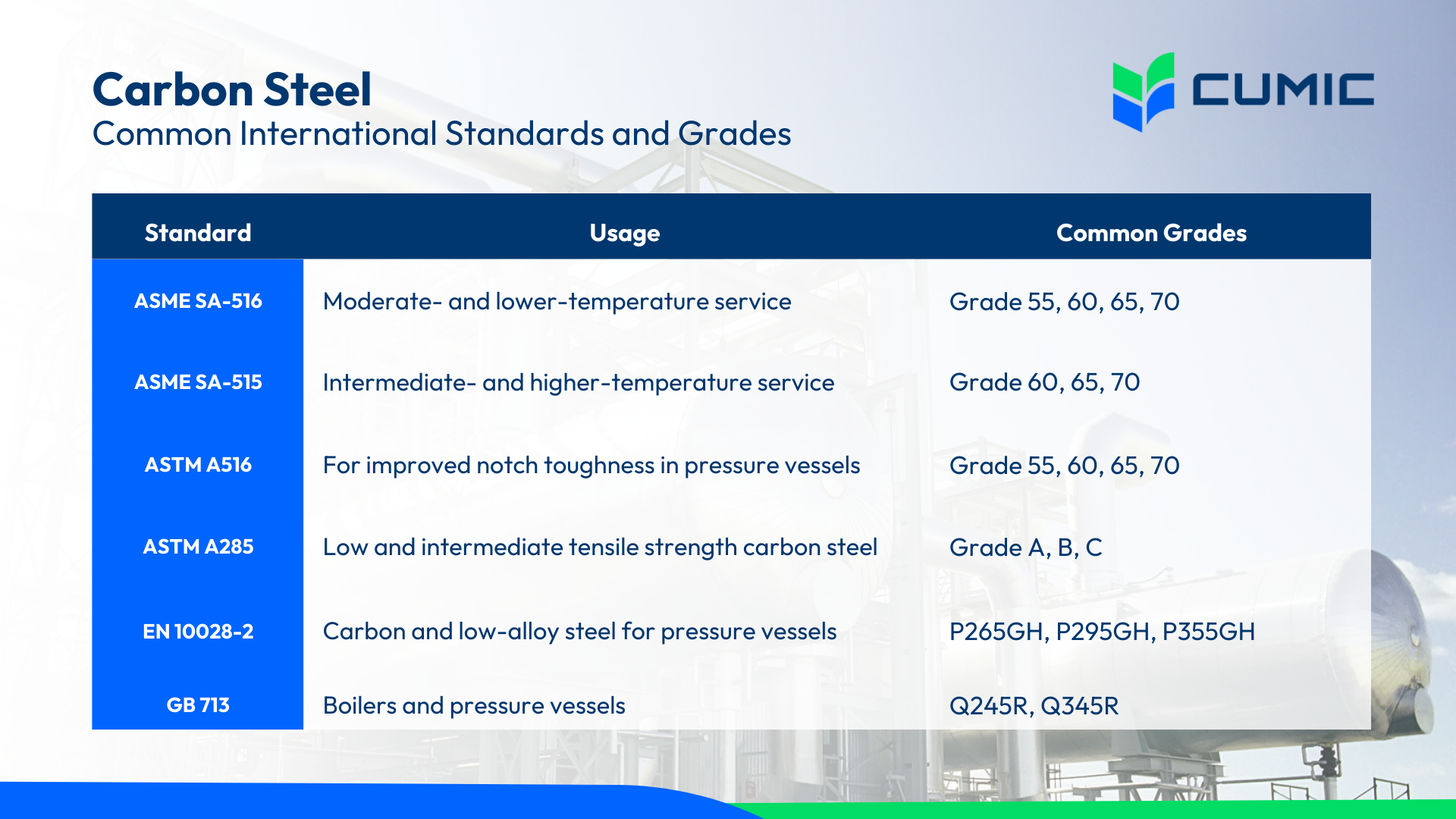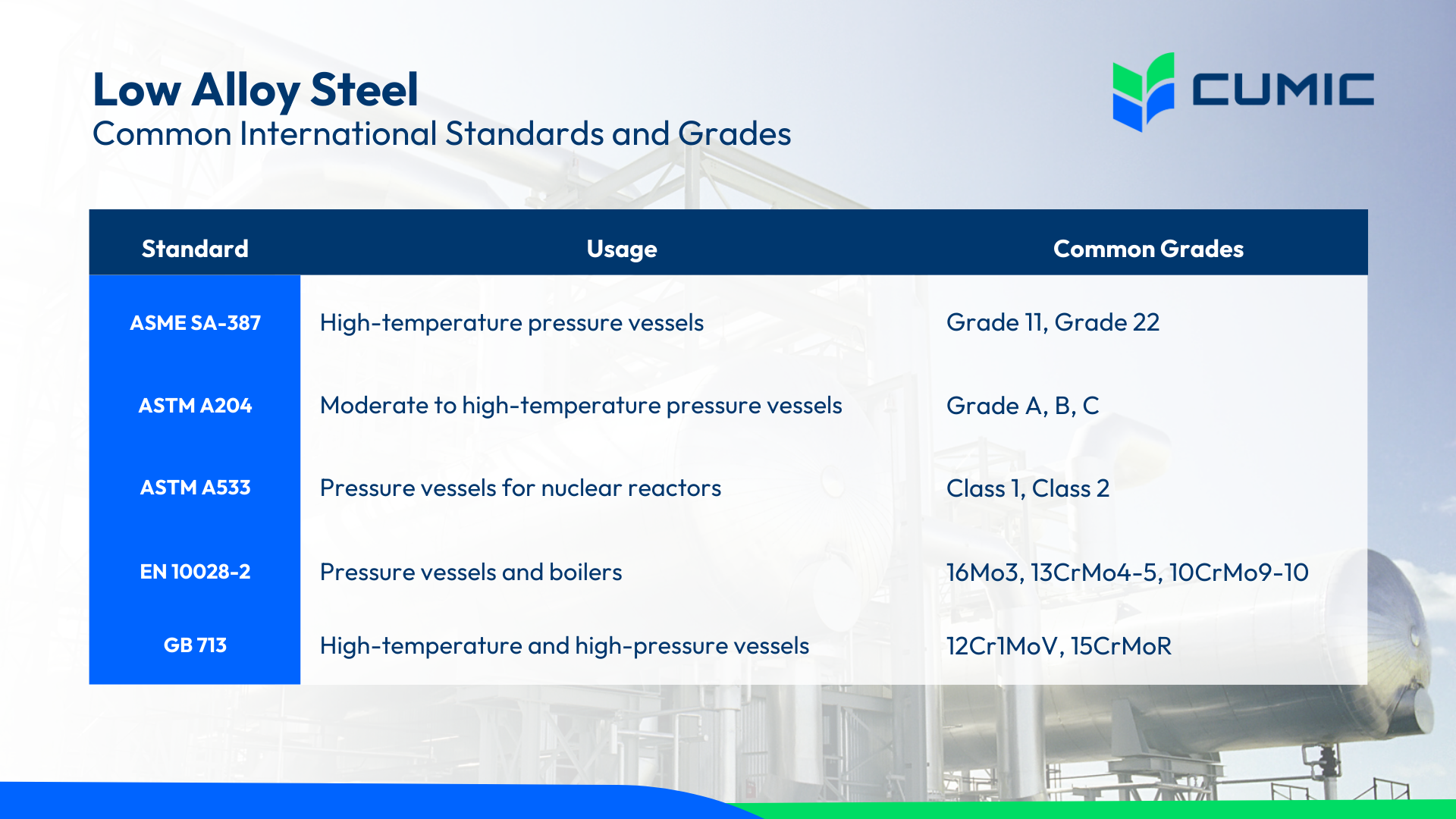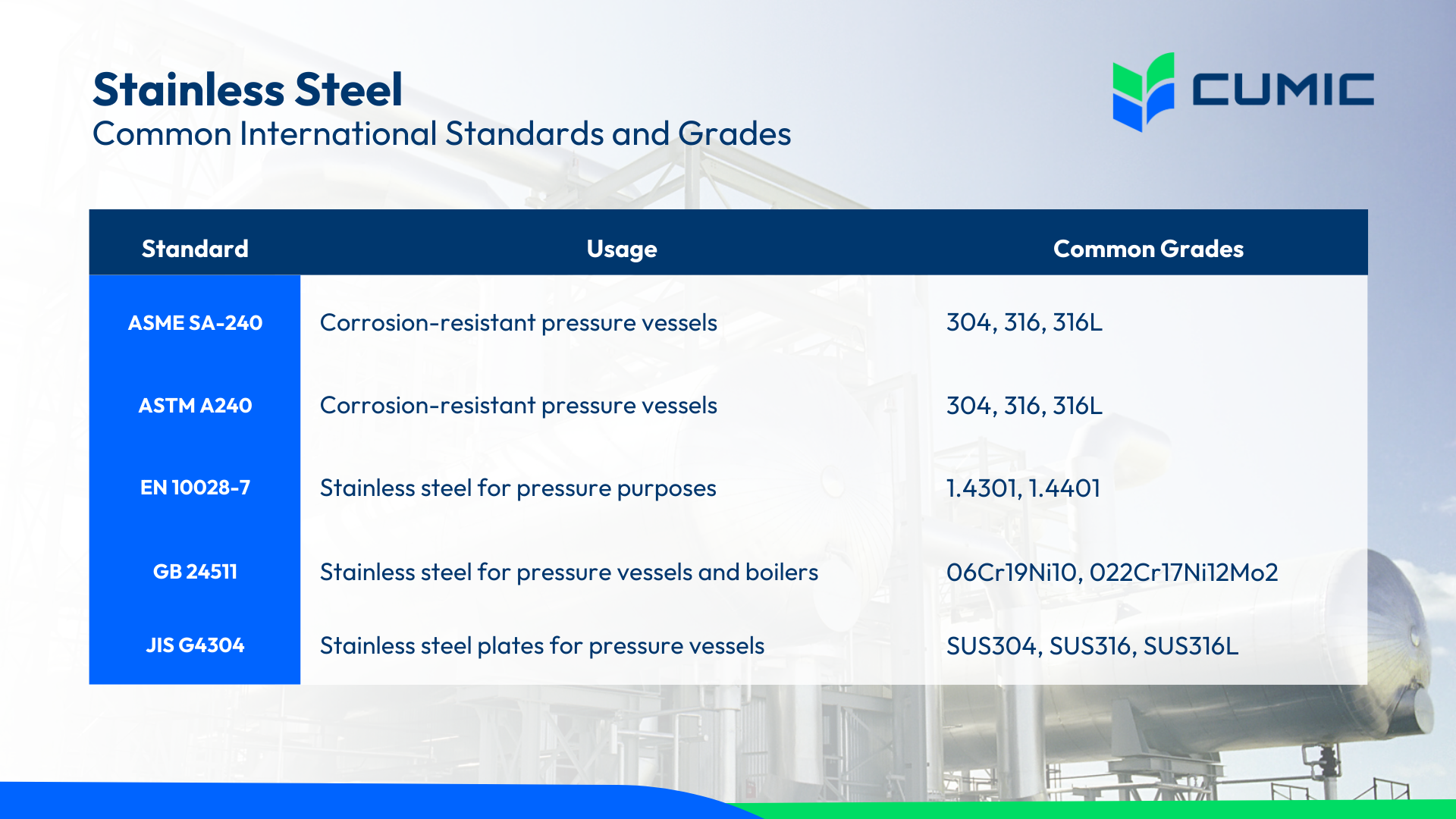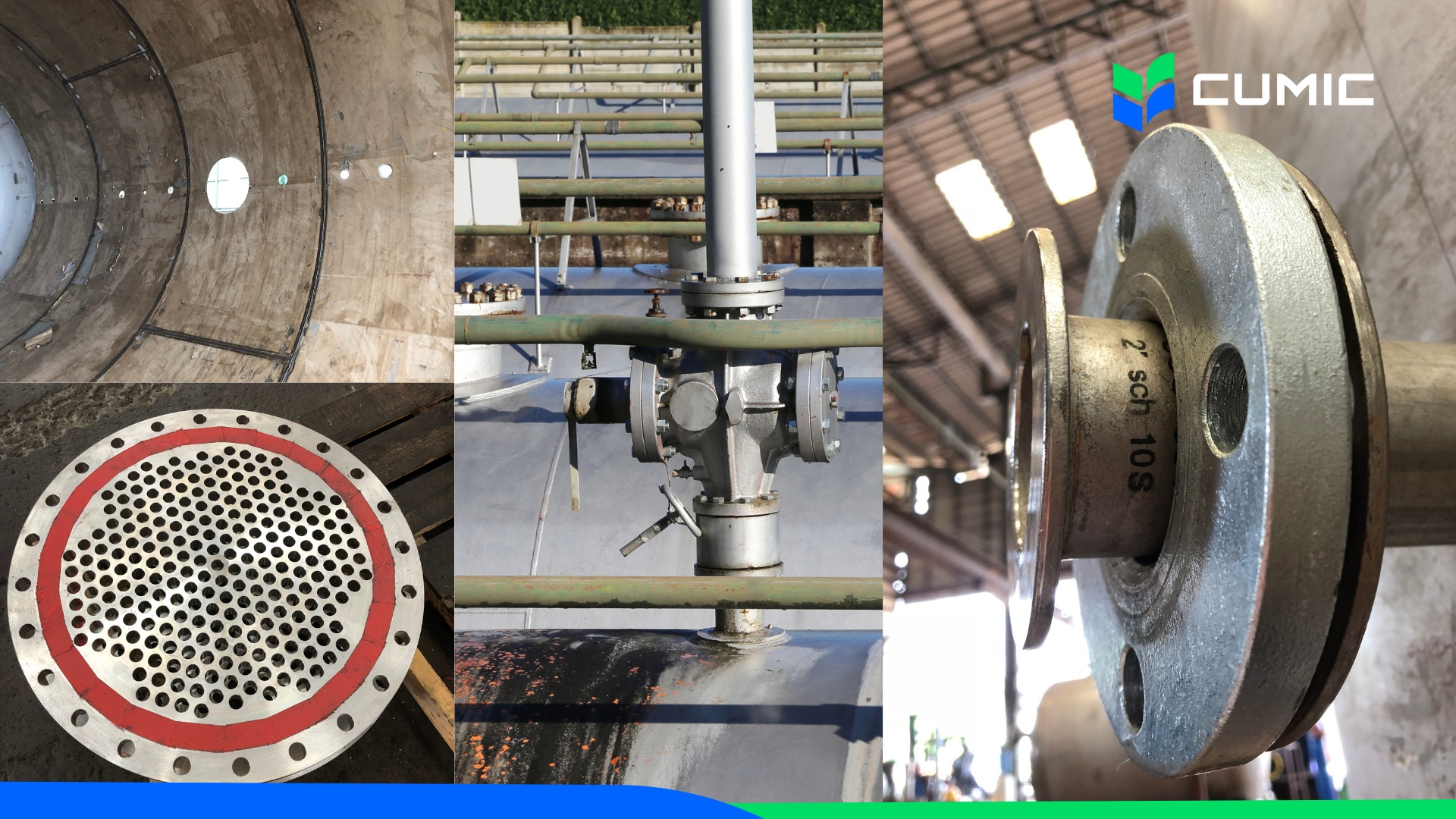The history of pressure vessels dates back to the Industrial Revolution. In the early days, pressure vessels were built using iron, but the development of high-strength steel in the 19th century revolutionized their design, allowing vessels to handle higher pressures with greater safety and efficiency. During the steam age, pressure vessels played a crucial role in powering steam engines used in trains, factories, and ships.
Selecting the right steel for pressure vessels is critical. The right material not only ensures the vessel can withstand high pressures and resist corrosion but also maintains the overall safety and durability of the equipment. Using the suitable steel can extend the vessel's lifespan , reduce maintenance costs, and prevent operational disruptions.
Up next, we’ll highlight the most commonly used steel types in today’s pressure vessel manufacturing, drawing on CUMIC’s extensive experience in supplying steel for pressure vessels.
Pressure vessel steel is often classified by its chemical composition, which affects its performance and suitability for different operating conditions. By understanding the chemical elements and their effects on material properties, engineers can choose the best option based on factors such as temperature, pressure, and exposure to corrosive elements.
Carbon Steel: Composed mainly of iron and carbon with small amounts of other elements like manganese and silicon, carbon steel is widely used for its balance of strength and cost-effectiveness. However, it lacks significant corrosion resistance, which limits its use in certain environments.

Low Alloy Steel: These steels have a small percentage (usually 1-5%) of alloying elements such as chromium (Cr), molybdenum (Mo), and nickel (Ni). These elements improve strength, toughness, and resistance to high temperatures and corrosion. Here’s how these elements contribute:
Chromium (Cr): Enhances strength and hardness.
Molybdenum (Mo): Improves high-temperature strength and corrosion resistance.
Nickel (Ni): Adds toughness and resistance to low temperatures.

Stainless Steel: These steels are characterized by the addition of at least 10.5% chromium (Cr), which forms a protective oxide layer that resists corrosion. Some stainless steels also contain nickel (Ni), manganese (Mn), and molybdenum (Mo) to further improve corrosion resistance, strength, and weldability. Common types of stainless include:
Austenitic Stainless Steel (contains chromium and nickel, such as 304, 316).
Ferritic and Martensitic Stainless Steels (primarily chromium-based, less nickel, like 410).

The type of steel product used in a pressure vessel depends on its design and the specific application. Below are the three most common steel products used in pressure vessel manufacturing, selected based on structural needs, pressure requirements, and operating conditions.
Steel plates are primarily used for components like shells, heads, and other flat structures in pressure vessels. They must be processed through cutting, rolling, welding, and heat treatment. Key requirements include high strength, good plasticity, toughness, and excellent cold bending and welding properties. These qualities ensure that steel plates can handle the significant pressure and stress that pressure vessels experience.
Steel pipes are commonly used for connections and heat exchanger tubes within pressure vessels. Whether sourced from seamless or rolled steel pipes, they undergo similar cutting, welding, and heat treatment processes as steel plates. High strength, good plasticity, and weldability are critical for ensuring the pipes' durability and reliability.
Forgings are used for high-pressure components like covers, end caps, flanges, and pipe flanges in pressure vessels. These components come in four grades (I, II, III, IV), with higher grades requiring more extensive testing, stricter standards, and correspondingly higher costs. Their strength and safety standards are crucial for withstanding the high pressures within the vessel.

As pressure vessel manufacturing evolves, there is increasing demand for advanced materials like high-strength alloys and composites. These materials offer better strength-to-weight ratios and enhanced corrosion resistance, making them ideal for challenging environments, such as those found in the chemical processing and petrochemical industries.
At CUMIC, we are committed to delivering the highest level of customer satisfaction. With over 18 years of experience, we have supported our clients in successfully completing their pressure vessel projects. Contact us today at cumic@cumic.com for a personalized quotation, and stay connected with us on LinkedIn and Facebook for the latest updates on our products and services.
